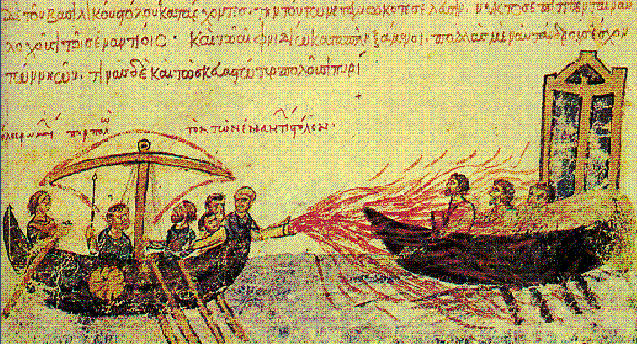Greek Fire

Greek Fire was the secret weapon of the Eastern Roman Emperors. It is said to have been invented by a Syrian Engineer, one Callinicus, a refugee from Maalbek, in the seventh century (673 AD). The "liquid fire" was hurled on to the ships of their enemies from siphons and burst into flames on contact. As it was reputed to be inextinguishable and burned even on water, it caused panic and dread. Its introducation into warfare of its time was comparable in its demoralizing influence to the introducation of nuclear weapons in our time. Both Arab and Greek sources agree that it surpassed all incendiary weapons in destruction. The secret behind the Greek fire was handed down from one emperor to the next for centuries. Rumors about its composition include such chemicals as liquid petroleum, naphtha, burning pitch, sulphur, resin, quicklimeand bitumen, along with some other "secret ingredient". The exact composition, however, remains unknown. For a thorough investigation of the weapon one can refer to Professor J.R. Partington's book, "A history of the Greek Fire and Gunpowder", Heffer, 1960. This volume quotes the ancient authorities extensively, with an excellent commentary. It also examines ancient and modern theories on the composition of the chemicals used in the Greek Fire. This is considered the most up to date source on the subject.
Compiled by Nikolaos Provatas. Source, The Alexiad of Anna Comnena.